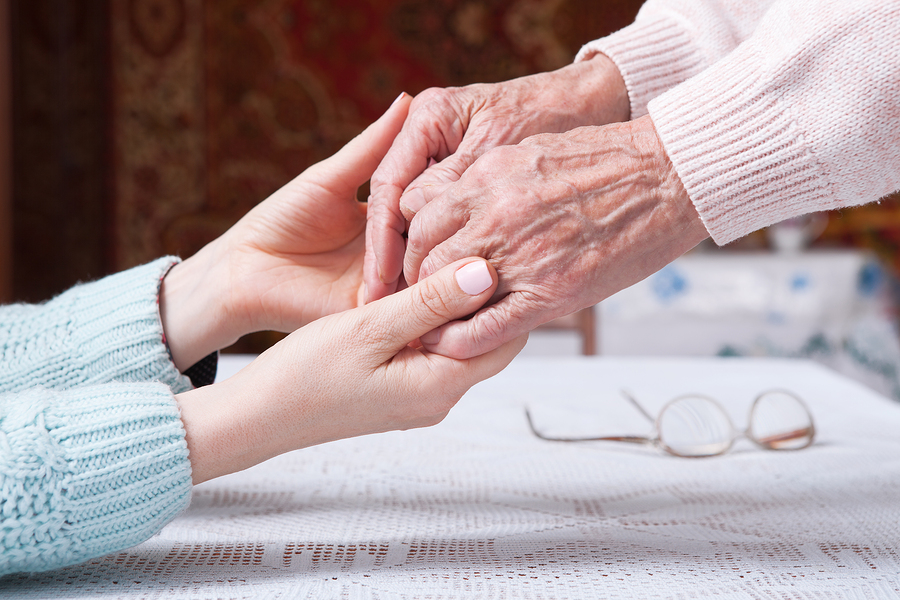- Make It Yourself Lavender Heart-Shaped Bath Bombs!
- 20 Things You Never Knew About “Down There”
- 12 Best Foods For Those Suffering From Arthritis Pain
- 12 Personal Hygiene Mistakes Almost Everyone Makes (Mom Never Told You About #4!)
- 15 Medicinal Plants And Herbs From The Cherokee People
- 12 Mind-Blowing Benefits Of Drinking Coconut Water During Pregnancy
- 12 Outstanding Winter Foods That Won’t Fatten You Up Like A Christmas Turkey
Can Dementia Be Really Inherited From Your Parents?
Dementia, or the decline of cognitive function with age, affects countless millions of older people around the world. Some people simply accept it as an inevitable part of the aging process that may or may not happen, but research has shown that there are proactive steps people can take in their lifestyle to reduce their chances of developing it. Nevertheless, many people still wonder: is dementia something that can be passed on from one generation to another? If your parents or grandparents develop some form of dementia, does this mean that you will someday as well? The answers are complicated, but mostly optimistic as we will explain below.
RELATED: Investing In Social Connections Now May Prevent Dementia Later
So, Is Dementia Hereditary?
Yes and no. Certain forms of dementia like Huntington’s Disease are indeed be passed down from one generation to the other because it is linked to a faulty gene. Other forms like fronto-temporal dementia are inherited in up to 50 percent of cases.
What about Alzheimer’s Disease? In the vast majority of cases (99 percent), Alzheimer’s disease is not inherited, but simply due to age. However, there are certain genes that are associated with Alzheimer’s disease. Aplipoprotein E-e4 (APOE-e4) is considered a risk gene, meaning that those with it have the potential to develop Alzheimer’s disease, but it is not guaranteed.
There are also deterministic genes which mean that those who have the genes are almost certain to develop Alzheimer’s disease at some point in their lives. These genes include presenilin-1 (PS-1), presenilin-2 (PS-2), and amyloid precursor protein (APP). These three genes are associated with the hereditary form of Alzheimer’s known as Autosomal Dominant Alzheimer’s Disease or “ADAD”. Cases of ADAD sometimes occur earlier in life than normal Alzheimer’s Disease, sometimes as early as the 50s, 40s or even 30s.The good news is that this disease is extremely rare accounting for only 1 percent of all Alzheimer’s Disease cases.
RELATED:The Truth About Your Memory And Alzheimer’s
Steps You Can Take to Reduce Your Chances of Developing Dementia
There are proactive steps you can take to reduce your chances of developing Alzheimer’s Disease or other forms of cognitive decline.
One factor is your diet. Eat lots of brain-healthy items like extra virgin coconut oil, olive oil and fatty fish. Numerous studies have proven that compounds like omega-3 fatty acids which are found in these foods are beneficial for the brain, and can help to maintain brain health well into old age, in addition to all their other health benefits.
Staying mentally engaged and socially connected to others is also a factor. Studies have shown that older people with healthy social networks are less likely to develop dementia. Human beings are social animals and in the absence of regular and positive social interaction, the mind— and indeed the brain itself— can begin to atrophy.
Hopefully this information has helped you to make sense of the relationship between genetics, behavior, environment, and dementia. While genetics is outside of one’s control, everything else is. It is within the capability of any person to follow these tips and increase their likelihood of maintaining a healthy brain in old age.
References:

































